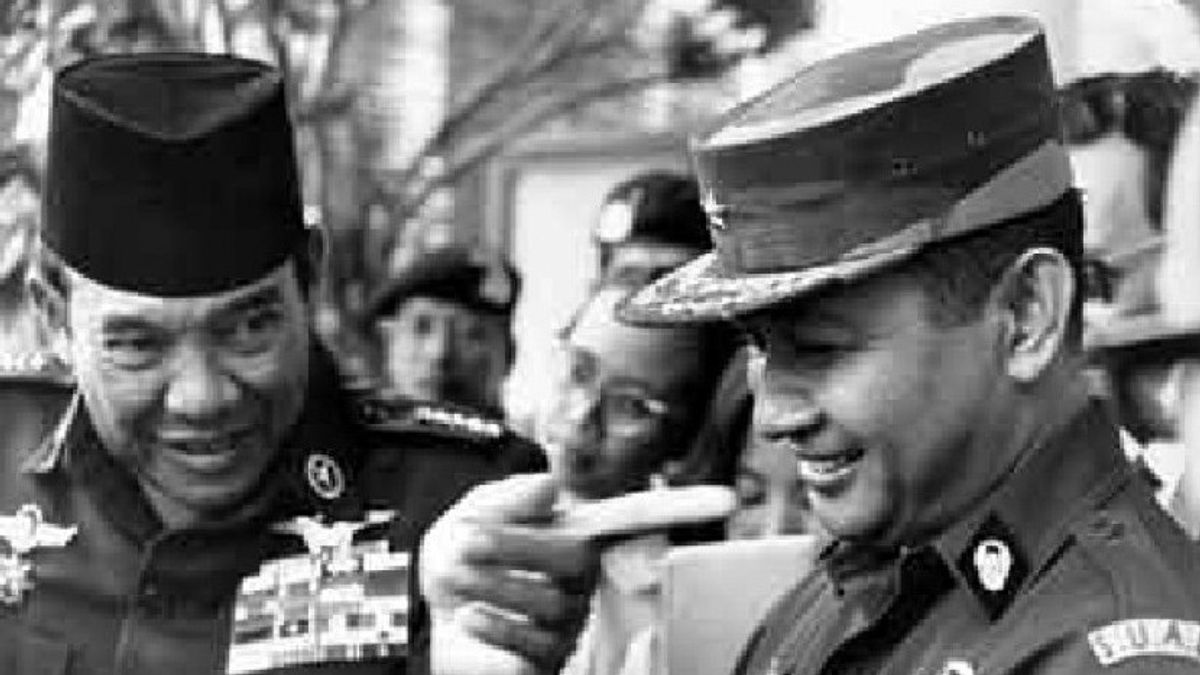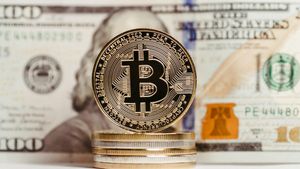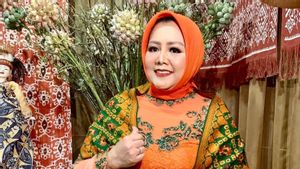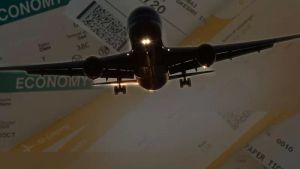JAKARTA - President Soekarno's leadership became the initial gateway for debt to enter. The dream of the National Architect to see Indonesia as a great nation is the reason. Lighthouse projects are encouraged. Yet the project is only ideological. Not economical. Soekarno's economic chaos spilled over into the New Order. Settlement again with debt.
Economic chaos was also one of the factors that led to Bung Karno's ouster. So is Suharto. Initially, Suharto had a solution. Along the way, his regime was tempted to make debt. Since then, eternal debt has become a hereditary tradition of the nation's leaders.
Indonesia has emerged as a beacon of developing countries after the Japanese occupation. As a new country, Bung Karno began to realize his dreams of making Indonesia a great country. That fiery spirit is embodied in a series of lighthouse projects.
The construction of the National Monument (Monas) until the 1962 Asian Games. The dream was initially supported by all Indonesians who were willing to sacrifice themselves to serve the interests of the country. But all only for a moment. The Old Order government (Orla) began to show its ulcers.
Corruption cases emerged one after another to the surface. Moreover, when the Indonesian people lived in poverty, those at the helm of power lived like new kings. They, people who were against the government, were then ostracized until they were thrown into prison. Mohammad Hatta to Sutan Sjahrir had experienced it.
“Any criticism of the government was answered with imprisonment and accused of being a tool of British-American imperialism. Opposition newspapers were shut down since 1962. Even though the Indonesian economy was badly damaged, President Soekarno didn't want to care. He built a palace in Bali, held the Ganefo sports party, planned Conefo (Confence of New Emerging Forces), to destroy Malaysia. Indonesia's debt amounts to 2.4 billion dollars."
"The existing parliament is not against Soekarno, because the parliament was appointed by Sukarno (without a general election), and all of its members are: yes man," said student activist Soe Hok Gie in the book Age of Transition (2005).

The peak of anger made all Indonesian students take large-scale actions to take to the streets in 1965-1966. Officers 'fed up' with the corrupt government joined the ranks. This dissatisfaction was expressed by the students in three demands: disband the Indonesian Communist Party (PKI), reshuffle the cabinet, and lower prices.
These three demands were later known as Tritura (Tri Demands of the People). Actions are not only centered in one place, but also at many points, ranging from the State Palace, Bogor Palace, Jakarta streets to ministry buildings.
The Orla government is considered to be indifferent to the welfare of the people. They are even considered insensitive to see the people languishing hit by the storm of recession. Bung Karno was also affected. He was deposed.
“I remember Bung Karno once said that the people's needs are not only bread, but also spiritual needs. It is true. But he forgot, without enough food, people will feel dissatisfied. Stomach affairs are a primary human need. There has been a saying long ago: the stomach can not wait. In addition, he tends to be authoritarian in using his power," said student of the Faculty of Medicine, University of Indonesia batch 66, Firman Lubis in the book Jakarta 1950-1960 (2018).
“Unfortunately the other leaders around him are just: Yes Man. Only a few dared to disagree with him, such as Bung Hatta, Sutan Sjahrir, Moh. Rom, Moh. Natsir, and Subadio Sastrosatomo. However, they must instead step aside and be removed. Some of them have been detained for years without due process," he added.
Debt in the New Order era (Orba)
The transfer of power from Orla to Orba brought a breath of fresh air. The unstable conditions – especially in the economic sector – in the era of Soekarno's administration were gradually remedied by Suharto. Similarly, the complicated problem of hyperinflation which reached 650 percent.
One of the causes of hyperinflation is that the Soekarno regime printed money to pay debts and fund lighthouse projects since the early 1960s. As a result, the high price spike of goods, including basic needs, must be handled by the New Order government.
Orba's strategy is the exact opposite of Orla's. The New Order government changed the direction of the economy from pro-east to pro-western. As a form of seriousness, Suharto formed a team of experts in economics and finance from the University of California Berkeley graduates.
This group of expert teams is also known as the 'Berkeley Mafia'. They perpetuate policies based on economic liberalization and free markets. One of the popular strategies of the Berkeley Mafia is to open the door to foreign investment.
“At the beginning of the New Order, these economists who graduated from the University of California Berkeley, United States (US) had a very good name. Those who were under 40 years old were seen as having succeeded in saving the Indonesian economy from the dangers of destruction inherited from the Old Order government under the leadership of President Soekarno," wrote Warjio in the book Politics of Development (2016).
After opening the tap for foreign investment, the Berkeley Mafia was busy seeking foreign aid. However, it is not easy because Indonesia is burdened by Orla's debt legacy. The New Order government did not give up until a consortium called the Inter-Governmental Group on Indonesia (IGGI) was formed.

Those who are members of the IGGI include Australia, Belgium, Germany, Italy, Japan, Netherlands, UK, United States of America, Austrailia, Canada, New Zealand, Norway, Switzerland, World Bank, IMF, Asian Development Bank (ADB), UNDP, as well as the OECD in 1967.
The purpose of forming a consortium is to provide loans to Indonesia more. After that, the disbursement of debts poured into the archipelago. Orla's debt can be paid off. However, New Order's debt from IGGI which is getting bigger is actually inherited from generation to generation, at least to this day.
This situation is described by a well-known narrative: the country is falling short, the forests are depleted, the debt is piling up, and only the wealthy conglomerates.
“When Suharto came to power around 1967, Soekarno also left a foreign debt of 2.4 billion dollars, most of the debt, namely 1.4 billion dollars, was made to Russia and communist countries; Suharto immediately paid off the debt before new debts from the Western Bloc countries began, namely after the formation of the IGGI."
"Before the financial liberalization of 1987, foreign debt from the private sector was still relatively small. However, after that, private debt became out of control. When IGGI changed to CGI, in 1992, foreign debt was recorded at 73.6 billion dollars," closed Sri Star Pamungkas in the book Change Regime, Change System: Struggle to Control the Archipelago (2014).
*Read other information about SOEKARNO or read other interesting articles from Detha Arya Tifada.
Other MEMORIESThe English, Chinese, Japanese, Arabic, and French versions are automatically generated by the AI. So there may still be inaccuracies in translating, please always see Indonesian as our main language. (system supported by DigitalSiber.id)













